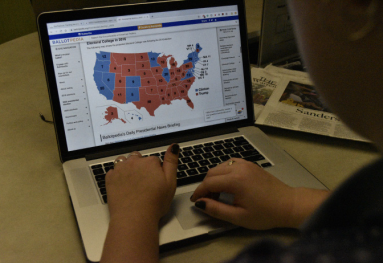Since the start of the 2020 election cycle, 26 Democrats have announced their presidential campaigns. There are currently 19 still running and only 12 that reached the polling and funding goals to participate in the Oct. 15 debate.
Many college-aged voters have expressed annoyance with the number of Democrats running and proclaimed that they would not be paying attention until some candidates dropped out of the race. The numbers haven’t been significantly dropping though, which is creating an issue with having informed voters.
Using the excuse that the number of candidates is overwhelming is no longer acceptable. We are only four months away from the South Carolina Democratic primary. You need to start paying attention.
If you are not supporting a candidate, either financially or through campaigning, it is possible the person you would feel passionate about voting for will not make it.
Already, eight candidates have qualified for the Nov. 20 debate. With this debate less than a month away, now is the time to start educating yourself on who the candidates are. Finding trustworthy, unbiased resources is also difficult, as reading opinion pieces about the candidates may help, but will likely not give you the adequate information you need.
Here are some sources you can use as you start the journey of finding out more about the candidates:
- govtrack.us – If you are looking into information about a candidate currently or previously serving in Congress, you can go here to look at their voting history. Research about front runners Elizabeth Warren, Joe Biden and Bernie Sanders can be conducted through here. By knowing their voting history, you will be able to understand the issues they support or are against.
- opensecrets.org – Shows a breakdown of where the candidates are receiving funding. The breakdown shows the number of individual donors, PACs, as well as corporate donors. By taking a look into where these politicians’ money is coming from, you can start to get a clear look at what might be influencing their policies. You can also go into detail based on past campaigns and where contributions to 2020 campaigns are coming from.
- ballotpedia.org – Offers polling information as well as summaries of the candidates and their policy positions organized by section. You can find summary information on positions from education to environmental issues to foreign policy. There is also the ability to compare how candidates’ campaign strategies may have shifted during their time in the race.
Based on these sources, and/or others, candidates that have piqued your interest and passion should have more information available on their websites. Most candidates’ websites spell out their policy positions in more detail. You can also find full and partial clips from the past debates online.
There are no longer any excuses to be uninformed about the candidates running for president in 2020. You don’t have to know exactly who you want to vote for in February, but you need to at least understand a little bit about what they stand for before then.
Photo: Sam Ross/ The Johnsonian





It’s actually a great and helpful piece of information. I’m happy that you simply
shared this helpful info with us. Please keep us up to date like
this. Thanks for sharing.